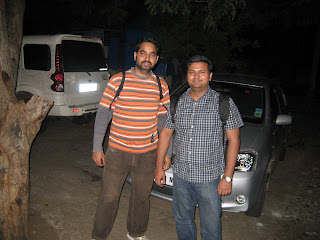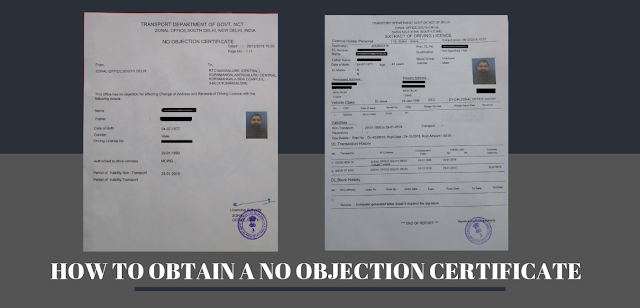Global Workforce and communication
We all know that communication plays a very important role in today's business environment. Its not just spoken language, but written as well as non-verbal communication plays equally important role. More so, when the business and their functions have gone global and you have global workforce.
Today, working with diverse cultural groups is fast becoming the norm. More so, the usual face to face meetings are being replaced by virtual meetings and teleconferences. Hence, it is even more important to make sure communication is effective and the message has been understood. Whether the company is transitioning to overseas expansion, or hiring from abroad, it is becoming important for professionals to work effectively with colleagues from widely diverse cultures. This also extends to developing a strong team spirit. It is, therefore, important to connect well to foster a positive work environment and have greater levels of productivity and efficiency.
Are there any specific rules to follow? What are the points you should keep in mind to be effective in your communications? There is a long list of points that we can discuss or even write a book. However, we will just highlight those few points which are crucial to connect to your global counterparts.
1. Communicate clearly and take feedback: Even though we all speak the same business language (i.e. English), different dialects and accents make it difficult for the other person to understand. Different accents of people across different countries, therefore, makes a communication little tough. The best thing to do in this situation is to speak slowly, clearly and keep it simple. Take feedback to make sure the other person has understood what you are saying, if you are taking instructions, listen carefully, summarize and confirm that what you have understood is correct and that's the message the speaker wanted to convey.
2. Any pre-conceived notions, get rid of them: Sometime people have a mind block for a particular person/culture or religion. Hence it is important to clear your mind of negative assumptions or notions. Do not be judgemental. Treat each person as an individual.
3. Get connected, make an effort: Even though we work in diverse backgrounds, we still might be able to find some similarity and some common grounds for discussion. Make an effort to build rapport. Use neutral topics to build rapport like weather, movies, hobbies etc.
4. Understand the context rather than the literal meaning of the words: Literal meaning of words is often confusing and different in different countries/cultures. For example, Gutter it's meaning in India is different than Australia. In India Gutter is usually referred to drainage system but whereas in Australia it usually means the channels on rooftop to lead off surface water. Hence, pay attention and understand the context.
5. Make yourselves familiar with the work culture: This is more important if you are dealing with a particular region or country. It is always good to research and find out more about the culture and the nuances. In this information age, finding information on net is very easy and you will get loads of information. Familiarize yourself of what is expected. Be aware of general norms before dealing with a particular country.
Having said that, it does not mean communication is not important when dealing with domestic counterparts. Communication plays equally important role, be it global counterparts or domestic. The business has become more of virtual and on phone and hence it is important for all to make sure communication is effective.
Today, working with diverse cultural groups is fast becoming the norm. More so, the usual face to face meetings are being replaced by virtual meetings and teleconferences. Hence, it is even more important to make sure communication is effective and the message has been understood. Whether the company is transitioning to overseas expansion, or hiring from abroad, it is becoming important for professionals to work effectively with colleagues from widely diverse cultures. This also extends to developing a strong team spirit. It is, therefore, important to connect well to foster a positive work environment and have greater levels of productivity and efficiency.
Are there any specific rules to follow? What are the points you should keep in mind to be effective in your communications? There is a long list of points that we can discuss or even write a book. However, we will just highlight those few points which are crucial to connect to your global counterparts.
1. Communicate clearly and take feedback: Even though we all speak the same business language (i.e. English), different dialects and accents make it difficult for the other person to understand. Different accents of people across different countries, therefore, makes a communication little tough. The best thing to do in this situation is to speak slowly, clearly and keep it simple. Take feedback to make sure the other person has understood what you are saying, if you are taking instructions, listen carefully, summarize and confirm that what you have understood is correct and that's the message the speaker wanted to convey.
2. Any pre-conceived notions, get rid of them: Sometime people have a mind block for a particular person/culture or religion. Hence it is important to clear your mind of negative assumptions or notions. Do not be judgemental. Treat each person as an individual.
3. Get connected, make an effort: Even though we work in diverse backgrounds, we still might be able to find some similarity and some common grounds for discussion. Make an effort to build rapport. Use neutral topics to build rapport like weather, movies, hobbies etc.
4. Understand the context rather than the literal meaning of the words: Literal meaning of words is often confusing and different in different countries/cultures. For example, Gutter it's meaning in India is different than Australia. In India Gutter is usually referred to drainage system but whereas in Australia it usually means the channels on rooftop to lead off surface water. Hence, pay attention and understand the context.
5. Make yourselves familiar with the work culture: This is more important if you are dealing with a particular region or country. It is always good to research and find out more about the culture and the nuances. In this information age, finding information on net is very easy and you will get loads of information. Familiarize yourself of what is expected. Be aware of general norms before dealing with a particular country.
Having said that, it does not mean communication is not important when dealing with domestic counterparts. Communication plays equally important role, be it global counterparts or domestic. The business has become more of virtual and on phone and hence it is important for all to make sure communication is effective.



Comments